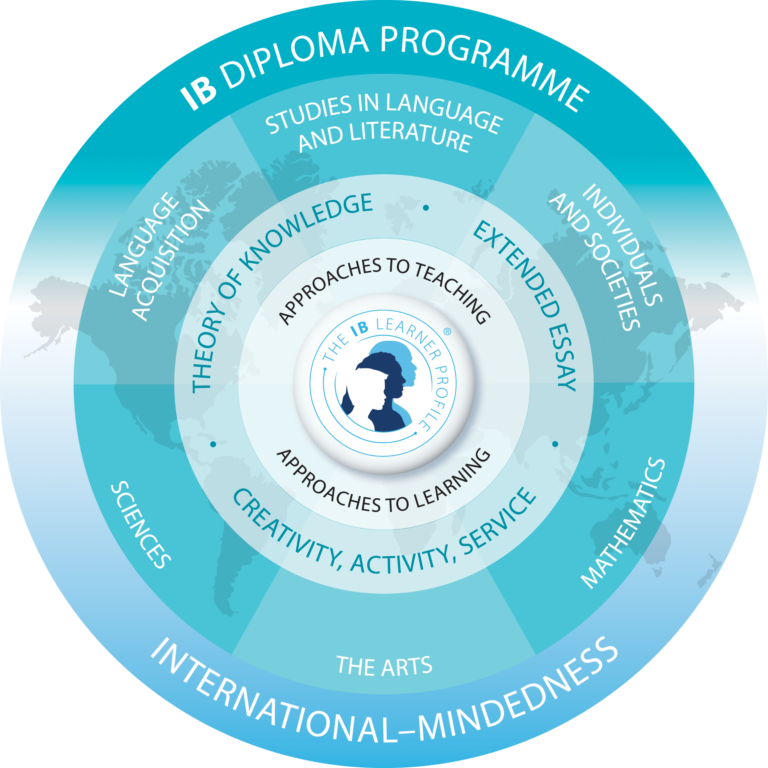
The IB Diploma Curriculum Framework
IB Diploma
– Years 11 & 12
The IB Diploma Programme Is Widely Recognised By The World’s Leading Universities.
The program is unique in that it is based on no particular national education system but is a deliberate balance between breadth and the specialisation which is required by many universities.
The IB values its hard-earned reputation for quality, for high standards and for pedagogical leadership and Mansfield Steiner School is proud to be a part of this global community. The IB promotes intercultural understanding and respect, not as an alternative to a sense of cultural and national identity, but as an essential part of life in the 21st century. It provides a balanced education for the ‘whole’ student and provides excellent preparation for both university and adult life.
The Diploma Programme prepares students for university and encourages them to develop:
- Critical thinking and analysis skills
- An international mindedness necessary to live and work in a global community
- An understanding of global issues and a concern for others in our community and the broader world
- A strong sense of their own identity and culture
- A balanced education for the ‘whole’ student
- An extensive knowledge and skill base in preparation for university and adult life
Follow this link for more information about the IB Diploma: https://www.ibo.org/programmes/diploma-programme/
Teaching and Learning in the IB Program
Challenges which stimulate student motivation and learning.
- High level learning – critical thinking and open-ended questions
- Balanced development of the whole person – academic, creative and cultural socially and culturally aware
- Global understanding
- Effective use of information technology to enhance learning
- Attributes fostered for success in the Diploma Programme:
– Active responsibility for own learning
– Organisation and time management
– Research skills
– Cooperative learning and open-mindedness
The IB Diploma Curriculum
The curriculum is modelled by a Diploma Curriculum Framework with six academic areas surrounding the three core requirements. Over the course of the two-year program, students’ study loads comprise six academic subjects.
Three of the six subjects are studied at Higher Level: courses representing a minimum of 240 teaching hours over the two-year period (HL)
The remaining three subjects are studied at Standard Level: courses representing a minimum of 150 teaching hours over the two-year period (SL)
Mansfield Steiner School will be expanding its subject offerings in the coming years and will deliver the following subjects in 2022 – 2023
- English Literature (HL)
- French Language (SL)
- Social and Cultural Anthropology (HL)
- Chemistry (SL)
- Mathematics (SL)
- Visual Arts (HL)
- As part of their Core studies students also undertake:
- Complete an Extended Essay: a substantial written work of up to 4,000 words, that enables students to investigate a topic of special interest that they have chosen themselves. It also encourages students to develop the skills of independent research that will be expected at university.
- Follow a Theory of Knowledge course (TOK) that encourages students to think about the nature of knowledge, to reflect on the process of learning in all the subjects they study as part of their Diploma Programme, and to make connections across the academic areas.
- Participate in Creativity, Activity, Service (CAS) that involves students in experiential learning through a range of artistic, sporting, physical and service activities.
At Mansfield Steiner School we align strongly with the Diploma’s emphasis upon international-mindedness. This stands firmly in line with our vision for our graduates to have an understanding of global issues and a concern for others in our community and the broader world. . IB Diploma graduates, with the range of subjects they have studied, have a greater choice of undergraduate programs. Many colleges and universities have developed their own recognition policies. The individual policies vary greatly, but they all have one thing in common; through their policies, these institutions make it apparent that they understand and appreciate the Diploma Programme graduate and the rigour of the Diploma Programme itself. http://www.ibo.org/en/university-admission